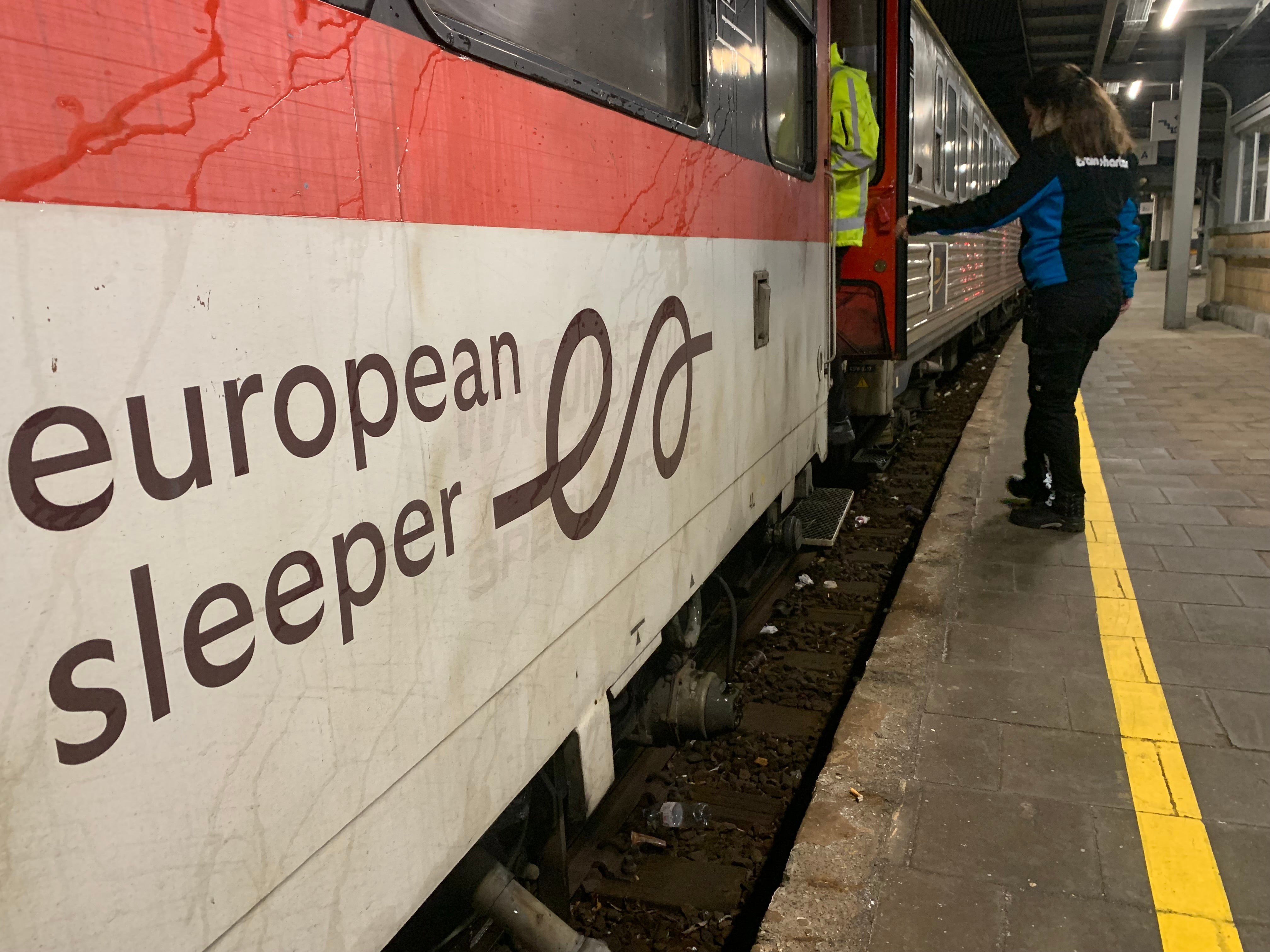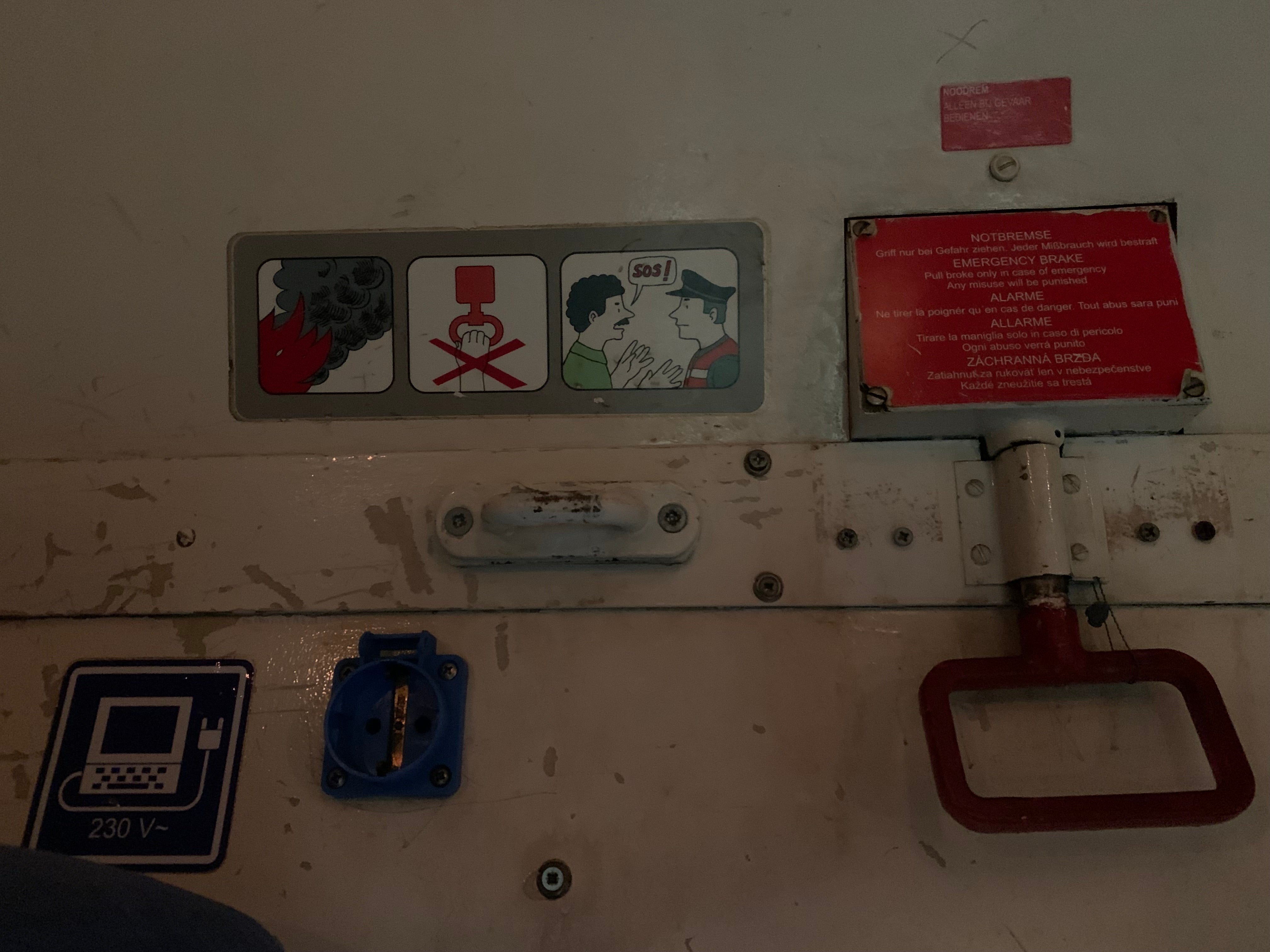What it’s like to catch the Brussels to Berlin sleeper train
The European Sleeper takes you from city to city in style, finds Andrew Eames


At first sight, there’s nothing unusual about the passengers assembling on platform 4 of Brussels Midi shortly before 7.30pm. There are families with huge suitcases, enterprising fiftysomething couples and younger single travellers with backpacks. Excitable children are already in pyjamas, clutching cuddly toys. It’s a standard crowd for an international train, you might say, and yet we eye each other, and nod imperceptibly, acknowledging an instant confederacy: we all know what we’re in for.
The secret’s out when the 19.22 pulls in. Through the sleek Eurostars rumbles a pick and mix of carriages, most of them originally built in Eastern Europe in the 1970s, towed along by a locomotive clearly marked “freight”. Although in this instance, the “freight” is folk who want to do the 500-mile journey to Berlin (via Amsterdam) as sustainably as possible: on a sleeper.
Over the past couple of years, there has been a quiet revolution in long-distance train travel in Europe. Where once the focus was on how fast and far you could go in a day, now suddenly there is a clutch of more leisurely overnighters, of which this European Sleeper is both one of the newest – and oldest. It is also the most useful for UK travellers because it connects with the Eurostar from London, and will soon extend its service to Dresden and Prague.

On board, the sense of throwback continues. This is no Orient Express, although the carriages did run into Istanbul (from the Bulgarian capital Sofia) in a previous life. Dimly lit – “the batteries will recharge once we get under way”, says the train manager – there are so many levers and switches in my compartment that it seems as if I could drive the thing myself.
But there’s nothing arthritic about the way it moves efficiently off into the night. I quickly remember why I like this kind of travel. The sense of being in a timeless cocoon, with its instant multinational community. In the corridor, I get into conversation with Tomas, who has a job in Berlin but a girlfriend in Brussels. He’s originally from the Canary Islands, although he only goes back there once a year.
Read more on sustainable travel:
It's early January so I am alone in my six-berth couchette, which means I can keep the curtains open and watch northern Europe gallop by, passing unnoticed as hundreds of thousands go about their habitual bedtime routines, and rumbling over the brushed velvet of famous rivers and glimpsing illuminated cathedral towers. In short, all the romance of the midnight train.

I lie in my berth (there’s a sheet, blanket and pillow) and interpret the sounds. The way the train creaks like a yacht catching the wind as it starts. The murmurings, the snorings, the midnight footfalls of those seeking bladder relief. And that ever-present sense of Berlin, way down the line, beckoning us onwards until the moment we arrive – having crossed three countries – exactly on time.
The great advantages of the sleeper are of course the saving both of the planet and accommodation costs, so by the time I am back on the train again, I have had three full days in a city that is rich in history and creativity, but have only had to pay for two nights.
I have been to its brand new (and free) equivalent of the British Museum, the Humboldt Forum, a vast collection consisting of carvings, masks, pots and jewellery from around the world. I’ve hiked out into the woodlands to the west of the centre to the former Teufelsberg Cold War listening post on the top of a hill, its tattered installations moaning in the wind and covered in huge street art creations, most with a political edge. I’ve had my obligatory currywurst supper, tried the new and highly digital Cold War museum and visited the new Swedish Fotografiska gallery, which inhabits a building whose interior is still covered in graffiti dating back to the fall of the Wall.

Well satisfied with all I have been able to see, and do, I am back at the Hauptbahnhof in plenty of time for the sleeper back.
This time, the carriage is better lit but there’s an interloper on board without a ticket who causes a bit of a stir by declaring that he will only obey instructions from the Chinese embassy or John Connor (of Terminator fame, I assume).
Once this unusual character has been de-trained, I have a quick chat with a relieved steward. “This train does tend to attract an unusual kind of traveller,” she says.
Quite so, my dear, quite so.
Getting there
The European Sleeper travels twice a week in each direction. A berth in a shared six-person couchette costs from £68 one way. A Eurostar ticket to Brussels costs from £57 one way.
Join our commenting forum
Join thought-provoking conversations, follow other Independent readers and see their replies
Comments
Bookmark popover
Removed from bookmarks